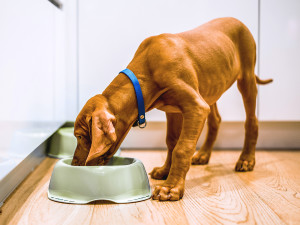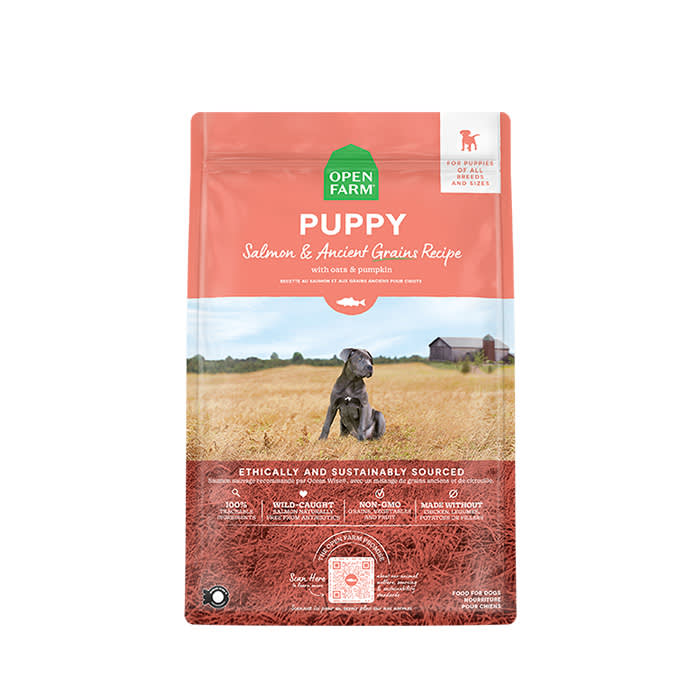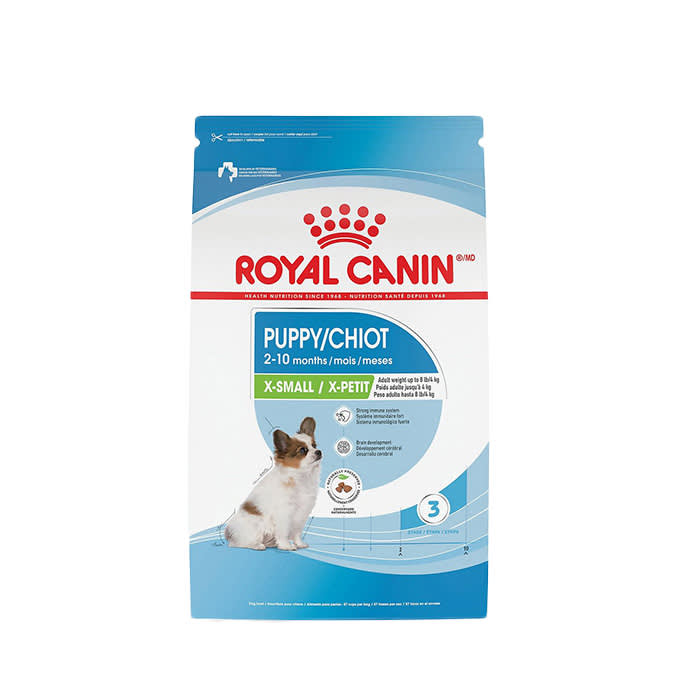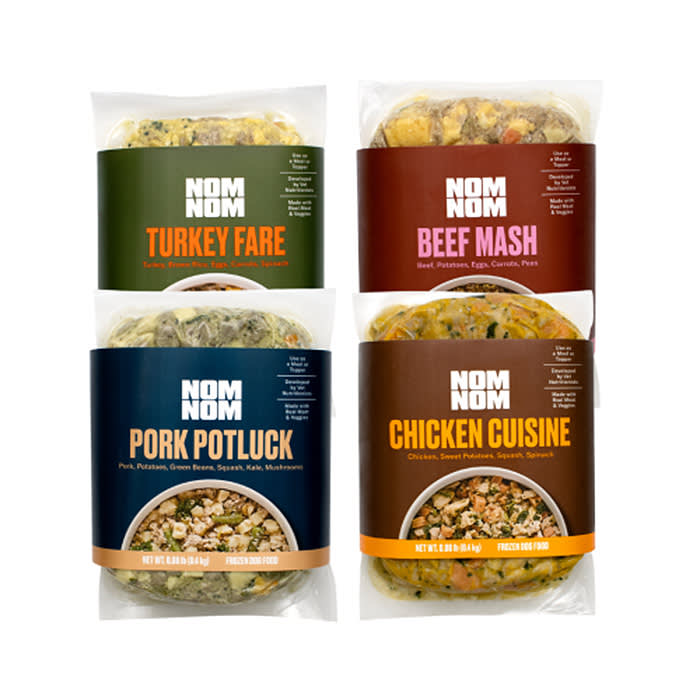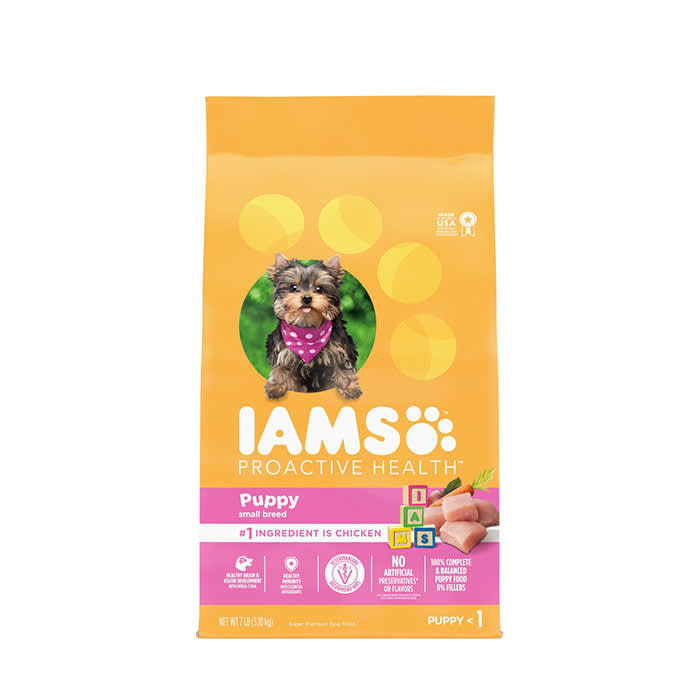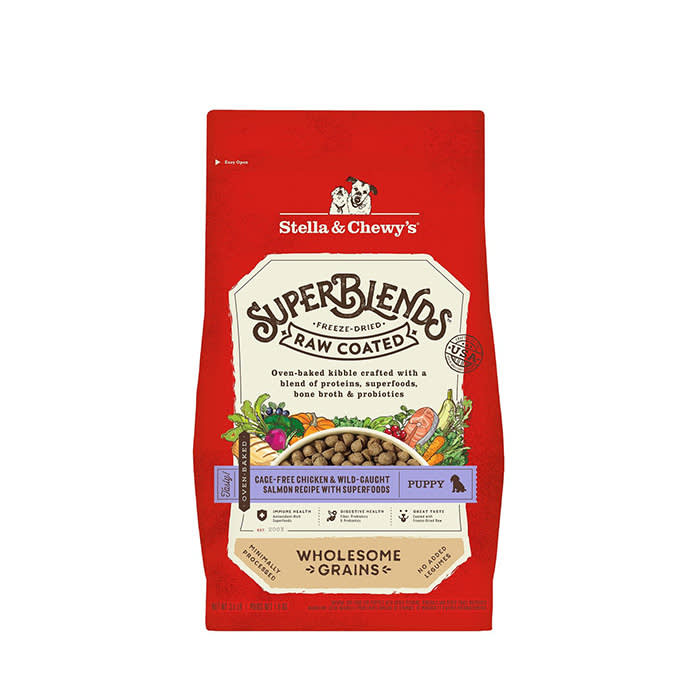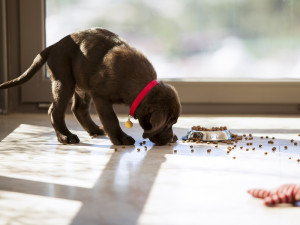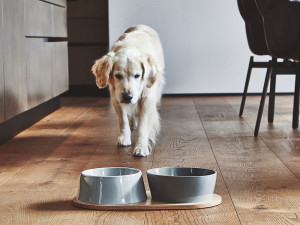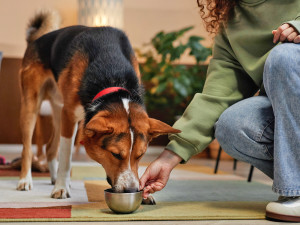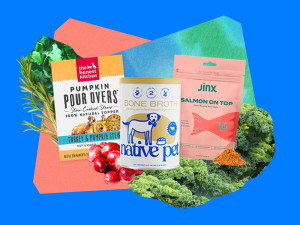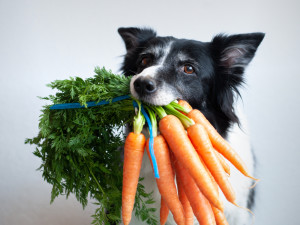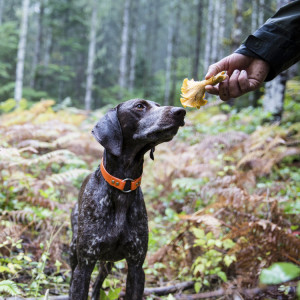What Is the Best Puppy Food for Small Breeds?
They may be tiny, but their appetites are not.

Share Article
In This Article:
Nutrition for Small Dogsopens in a new tab Best Food for Small Breed Puppiesopens in a new tab Common Health Issues in Small Breed Puppies Related to Nutritionopens in a new tab Frequently Asked Questionsopens in a new tab
Congrats on your tiny bundle of puppy love! Now, what will you feed them? If you’re someone who likes to shower your loved ones with affection in the form of food, you’ll have to ease up on the quantity in this case: Little dogs have little stomachs (understandably), and it’s easy to go overboard at mealtimes. Instead, show your love by feeding your small-breed puppy high-quality foods that are just right for them (and of course, you’ll give them plenty of cuddles and playtime between meals).
When it comes to raising a healthy and happy small-breed puppy, providing them with the right nutrition is crucial. Small-breed puppies have unique dietary requirements, and choosing the best puppy food tailored to their specific needs can set them up for a lifetime of good health.

littleKin™ is Kinship’s home just for puppy and kitten parents. Bop over to check out expert advice, new pet tools, and special deals—all curated for your newest family member.
opens in a new tabRead on to find out what you need to know to make sure they receive the right balance of nutrients for a healthy start in life.
Btw, our editors (and their pets) picked out these products. They’re always in stock at the time we publish, but there’s a chance they’ll sell out. If you do buy through our links, we may earn a commission. (We’ve got a lot of toys to buy over here, you know?)
Nutrition for small dogs
Veterinarian Wendy Hauseropens in a new tab, veterinary advisor at ASPCA Pet Health Insuranceopens in a new tab, says that while there are lots of options for dog diets, it’s important that anything you feed your dog has all the nutrients they need. So, while you may be tempted to make your puppy’s food yourself, or give them treats from your own plate, it’s best to go with an option that has gotten the stamp of approval from your vet.
Your small-breed puppy can eat some of the same foods that help keep you healthy — but Hauser says to use caution when doling them out.
“Human foods can be provided as treats or supplements to a commercial diet, but should represent no more than 10 percent of the caloric needs of your pet. This is often only one or two teaspoons of human food. And not all human foods are safe for dogs; a great resource is found on the ASPCA site.”
Hauser also says to remember that, “in general, small dogs need significantly fewer calories, due to their small stature.” Keep an eye out for the following in dog food that’s made for small-breed puppies:
Essential vitamins and minerals
Necessary vitamins may include vitamin A, which supports vision, immune function, and skin health; vitamin D, to keep your puppy’s bones strong; vitamin E, which has antioxidant properties; vitamin C, also good for the immune system; and B vitamins for energy, metabolism, brain function, and red blood cell production. Calcium, magnesium, and iron are just a few of the minerals that small breed puppies need, as well.
Supports higher energy requirements
Puppies are known for being balls of energy — and that boundless capacity for being playful (and often, mischievous) requires nutrient-dense food. That’s one reason it’s good to stick with foods that are crafted specifically for puppies.
Adequate protein and fat content
Protein and fat are what will give your small breed puppy the energy to run circles around you, fetch toys and sticks, and chew up any treasures you accidentally leave within reach (keep those pricey retainers and night guards safely put away, especially!).
Smaller kibble size
Tiny puppy mouths and teeth require tiny kibbles! Or at least, smaller than the usual. Small breed puppy food will be the right size for your dog to comfortably chew and swallow.
Best food for small breed puppies
Best overall small-breed puppy food
Best puppy dry food for small breeds
Best premium small breed puppy food
Best budget-friendly small breed puppy food
Healthiest puppy food for small breeds
Alternatives to commercial dog food
If you choose to cook your dog’s food (or add home-cooked foodopens in a new tab to their existing diet), please consult your vet as to what they recommend you use in the homemade food. Also, ask your vet whether they recommend homemade food at all; they may suggest that you stick with a commercially made dog food that has all the ingredients your dog needs.
Common health issues in small breed puppies related to nutrition
Hauser says that choosing the right food for your small-breed puppy isn’t the only thing you need to think about. “While what you feed your dog is important, it is equally important to focus on how you feed your small breed dog. Many health conditions can arise from what and how pets are fed.” The most common of these include:
Periodontal disease
Periodontal disease opens in a new tab— a more advanced stage of gum disease — is the most common disease of small breed dogs, Hauser says. “Dogs weighing less than 14 pounds are more than five times as likely to develop periodontal disease than large breed dogs.”
This can occur for many reasons — one of which is feeding your puppy soft foods. “In addition to daily tooth brushing, pet parents can offer dental chews or dry diets that are formulated to lessen dental disease. Your veterinarian can make recommendations,” Hauser says.
Obesity
After periodontal disease, obesity is the second-mostopens in a new tab common disease in dogs, Hauser says — and obesity increases the risk of a number of other health conditions, such as arthritis, diabetes, and tracheal collapse (which is more common in small-breed dogs).
“It’s easy to overfeed small-breed dogs,” Hauser says. “I have found that the feeding guidelines on dog food bags tend to be excessive for the average small-breed dog.” She adds: “Owners of dogs that are overweight spend 17 percent more on healthcare costs and nearly 25 percent more on medications.”
Hypoglycemia
Hypoglycemia, or low blood sugar (glucose), is most often associated with toy breed puppies, Hauser says. “Unless there are underlying health conditions, it is rare for a toy or small-breed adult dog to develop hypoglycemia.”
Blood glucose helps give your pup plenty of energy to leap, lick, dig, chew, run, and all those other important activities. Low glucose can lead to symptoms including lethargy, muscle weakness, tremors, and seizures. Regular, balanced meals and veterinarian check-ups are important and will likely head off any potential blood sugar issues.
FAQs (People also ask):
Feeding your small-breed puppy the right food is the best way to help ensure their health and happiness. Got more questions? Below, Hauser answers a few of the most common ones we hear from pet parents below.
What can I feed my dog instead of traditional dog food?
Use caution when giving your dog non-traditional foods. “Recipes for home-cooked diets found online are often lacking in essential nutrients, which can endanger your dog’s health,” Hauser says. She says it’s important to seek guidance from a board-certified veterinarian nutrition specialist (DACVIM-Nutrition), who can customize the diet to meet the needs of the dog.
What should a small dog eat per day?
Hauser says this depends on many factors, including the pet’s breed, age, activity level, and the caloric content of the food they’re getting. “Ask your veterinarian for guidance on how much to feed your pet daily, and remember to factor in calories from treats. Motivated pet owners can find tools to calculate the dog’s caloric needs online; my favorite is found at the Association for Pet Obesity Preventionopens in a new tab.”
What nutrition should a small dog have?
Again, Hauser says it’s important to talk with your veterinarian about your dog’s needs, as this can vary. But in general, foods with adequate protein, vitamins, and minerals, given in appropriate amounts, will keep your small-breed puppy bouncing along happily for years to come.
References:
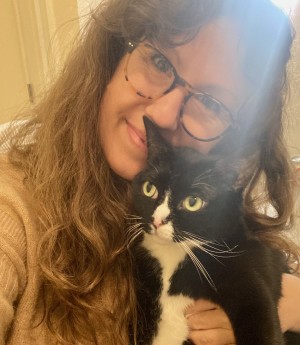
Elizabeth Laura Nelson
Elizabeth Laura Nelson is a writer and editor based in Brooklyn, New York. As a child, Elizabeth was scared of cats (claws and teeth, yikes) but she has since gotten over her fear and now shares her home with three sweet and gentle feline companions who make life better (and cuddlier) every day.
Related articles
- opens in a new tab
Can Adult Dogs Eat Puppy Food?
They might still be your baby, but here’s why they need to eat like a grown-up.
![]() opens in a new tab
opens in a new tab3 Ways to Make Sure Your Pet Food Packaging Actually Gets Recycled
With the help of innovative waste-management company TerraCycle, it’s easier than you think.
![collage of dog food toppers on blue background]() opens in a new tab
opens in a new tab9 Food Toppers That Will Make Your Dog Actually Want to Eat Dinner
If your dog suffers from mealtime boredom, spice up their food bowl with one of these tasty toppers.
![Dog biting into a bunch of carrots]() opens in a new tab
opens in a new tabHow to Get Your New Dog the Vitamins and Minerals They Need
Your pup needs their greens, too.
![A dog sniffing a mushroom out of a hand.]() opens in a new tab
opens in a new tab6 Mushroom Superfoods that Won’t Turn Your Dog Into a Zombie
Nothing to fear here The Last of Us fans — ’shrooms are great immune-boosters.
![Young blonde woman with a Jack Russell puppy during spring in the city.]() opens in a new tab
opens in a new tabThe Best Training Treats for Dogs in 2025
The most mouth-watering treats for training your pup.
